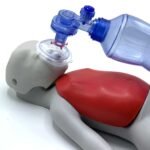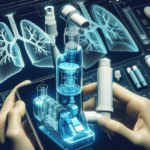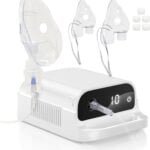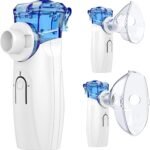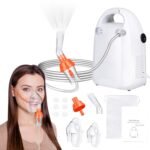
If your child has been prescribed an inhaler or nebulizer for their respiratory condition, you may be wondering how you can effectively assist them in using these devices correctly. It can be intimidating at first, but with a little guidance and practice, you can become proficient in helping your child manage their medication. This article aims to provide you with tips and techniques to ensure that your child receives the right dosage and gets the most out of their inhaler or nebulizer treatment. By understanding the proper techniques and establishing a supportive routine, you can empower your child to confidently manage their respiratory health.

Understand the Importance of Proper Inhaler or Nebulizer Use
Knowing the benefits of correct usage
Proper use of an inhaler or nebulizer is essential for effectively managing respiratory conditions like asthma or chronic obstructive pulmonary disease (COPD). Using these devices correctly ensures that the medication reaches the lungs, where it can provide relief and improve breathing. When used properly, inhalers and nebulizers help to open up the airways, reduce inflammation, and prevent or relieve symptoms such as coughing, wheezing, and shortness of breath. By ensuring correct usage, you can maximize the benefits of the prescribed medication and help your child breathe more easily.
Understanding the potential consequences of incorrect usage
Incorrect usage of an inhaler or nebulizer can have significant consequences for your child’s respiratory health. If the medication does not reach the lungs in the correct amount or at the right time, it may not provide the desired relief or control of symptoms. This can lead to persistent respiratory distress, increased exacerbations, and a higher risk of complications. It is, therefore, crucial to understand how to correctly use the inhaler or nebulizer to ensure your child receives the full therapeutic effect of their prescribed medication.
Seeking professional advice and guidance
To ensure proper inhaler or nebulizer use, it is essential to consult with healthcare professionals who specialize in respiratory conditions. They can provide detailed instructions specific to your child’s prescribed medication and condition. Health professionals can explain the correct technique, address any concerns or questions you may have, and offer demonstrations or device checks. By seeking professional guidance, you can gain confidence in assisting your child and effectively managing their respiratory condition.
Familiarize Yourself with the Inhaler or Nebulizer
Understanding the device’s components
Before assisting your child with their inhaler or nebulizer, take the time to familiarize yourself with the device’s components. Inhalers typically consist of a plastic mouthpiece, a medication canister, and a metal canister holder. Nebulizers, on the other hand, usually have a base unit, tubing, a medication chamber, and a mouthpiece or mask. Understanding how these different parts work together will help you guide your child during medication administration.
Reading the instructions and labels
Each inhaler or nebulizer may have specific instructions for use, which may vary depending on the brand and type of medication being administered. Carefully read the instruction manual that comes with the device, paying attention to details such as dosage recommendations, storage instructions, and device cleaning recommendations. Additionally, familiarize yourself with any warnings or precautions mentioned on the label to ensure safe and effective use.
Practicing with an empty inhaler or nebulizer
To build confidence in assisting your child with their inhaler or nebulizer, practice with an empty device. This way, you can focus on demonstrating the correct technique without the added pressure of medication administration. Show your child how to hold the device properly, how to activate it, and how to inhale or breathe through it. When practicing with a nebulizer, demonstrate how to assemble and disassemble the device as well. This hands-on practice will help both you and your child become comfortable with the device’s operation.
Ensure a Proper Technique
Understanding the correct breathing technique
Correct breathing technique is crucial for ensuring the medication reaches the lungs effectively. For inhalers, the typical technique involves taking a slow, deep breath through the mouth while simultaneously pressing down on the inhaler’s canister to release the medication. It is important to inform your child to hold their breath for a few seconds before exhaling slowly. With nebulizers, the child should inhale deeply through the mouth or nose while the medication is being administered. Make sure your child understands the importance of breathing calmly and deeply to optimize medication delivery.
Teaching your child to coordinate breathing and device activation
Coordinating breathing and device activation is essential for proper medication delivery. Teach your child to start inhaling before pressing down on the inhaler canister or activating the nebulizer. This coordination ensures that the medication is drawn into the lungs as your child breathes in. By practicing this technique together, you can help your child develop a consistent and effective inhalation pattern.
Demonstrating and practicing the correct hand positions and maneuvering
Proper hand positioning and maneuvering are vital for successfully using inhalers or nebulizers. Demonstrate to your child the correct technique for holding the inhaler or nebulizer, ensuring that they grip it firmly but comfortably. Show them how to align the device correctly with their mouth or nose to optimize medication delivery. Practice together, emphasizing the importance of stability and maintaining a seal between the device and their inhalation pathway. Repeatedly demonstrating and practicing these techniques will help your child develop the necessary dexterity and coordination for effective device manipulation.
Create a Comfortable Environment
Choosing a quiet and relaxing space for medication administration
Creating a comfortable and soothing environment for medication administration can help your child feel more at ease. Choose a quiet space where they can sit comfortably, preferably away from distractions and interruptions. This allows them to focus on their breathing and the device without unnecessary disturbances.
Reducing distractions and interruptions
Minimize distractions and interruptions during medication administration to maintain your child’s focus. Turn off the television, radio, or any other noisy devices that may draw their attention away. Depending on their age, explain to your child the importance of maintaining a peaceful environment during this time. By minimizing distractions, you can help them concentrate on their inhaler or nebulizer technique.
Making the experience enjoyable and stress-free
Make using the inhaler or nebulizer a positive experience for your child. Incorporate fun elements such as stickers, timers, or favorite toys to distract and entertain them during the process. Encourage relaxation techniques like deep breathing exercises or listening to calming music. Creating a stress-free and enjoyable atmosphere can alleviate any anxiety associated with medication administration, making it more enjoyable for both you and your child.
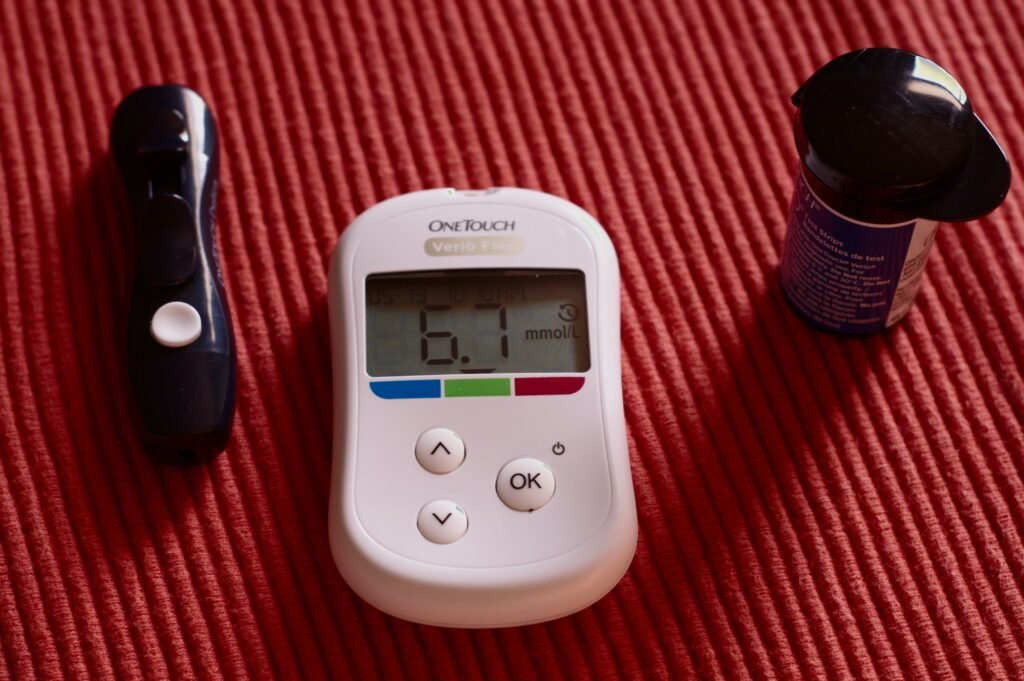
Establish a Routine and Set Reminders
Incorporating medication use into daily activities
Incorporating medication use into your child’s daily routine can help establish a consistent habit. Find specific times during the day when your child is typically calm and settled. For example, incorporate medication use into their morning or bedtime routines. By associating it with existing habits, the use of the inhaler or nebulizer becomes a natural part of their daily activities.
Setting consistent times for inhaler or nebulizer sessions
Consistency is key when it comes to medication administration. Set specific times for your child’s inhaler or nebulizer sessions and stick to them as closely as possible. Consistent scheduling helps ensure that doses are not missed and that medication levels in the body remain stable. Regular use of the inhaler or nebulizer at the prescribed intervals maximizes its effectiveness and improves symptom control.
Using visual or auditory cues to remind your child
Visual or auditory cues can serve as helpful reminders for your child to use their inhaler or nebulizer. Set up visual cues such as placing the device in a visible spot or using a specific container to store it. This serves as a visual reminder whenever your child sees it. Alternatively, use auditory cues like alarms or a specific ringtone on your phone to signal medication time. These cues help reinforce the routine and prompt your child to adhere to their medication schedule.
Encourage Independence
Gradually empowering your child to self-administer
As your child grows older and becomes more capable, encourage them to take on more responsibility for their own medication administration. Gradually empower them to self-administer their inhaler or nebulizer, with your supervision and support. Start by allowing them to press the inhaler canister or nebulizer activation button under your guidance. As they become more confident and proficient, they can take on additional tasks until they can independently manage their medication. This gradual transition promotes a sense of independence and ownership over their treatment.
Supervising while allowing them to take control
While encouraging independence, it is important to strike a balance and continue supervising their medication administration. Ensure that your child is using the inhaler or nebulizer correctly and following the correct technique. Provide guidance and gentle reminders if needed. In this way, you can support your child while allowing them to take control of their own healthcare.
Acknowledging and praising their efforts
Acknowledge and praise your child for their efforts in learning to use their inhaler or nebulizer correctly. Positive reinforcement helps build their self-confidence and motivation to continue adhering to their treatment plan. Celebrate their milestones, such as successfully using the device on their own or maintaining consistency in their medication routine. By recognizing their achievements, you create a supportive and encouraging environment for their overall respiratory health.

Monitor and Track Usage
Keeping a record of medication doses and timings
Keeping a record of your child’s inhaler or nebulizer usage is essential for monitoring their medication adherence. Maintain a logbook or use a mobile application to record the date, time, and dosage administered. This allows you to track their medication usage accurately and note any patterns or changes in symptoms. Sharing this information with healthcare providers can help them assess the effectiveness of the prescribed treatment.
Using tracking tools or apps
Several mobile applications or tracking tools are available to help monitor medication usage. These tools often provide reminders, maintain dosage history, and generate reports that can be shared with healthcare providers. Explore different options to find one that suits your preferences and helps you stay organized in managing your child’s respiratory medication.
Discussing any missed or delayed doses with the healthcare provider
If your child misses or delays a dose of their inhaler or nebulizer, it is important to communicate this to their healthcare provider. They can provide guidance on how to manage the missed dose and assess whether any adjustments to the treatment plan are necessary. Open communication with the healthcare provider ensures that your child’s medication is optimized and their respiratory condition is effectively controlled.
Educate Your Child about Their Condition
Explaining the purpose of the medication
It is important to explain to your child the purpose of the medication they are taking through their inhaler or nebulizer. Use age-appropriate language and concepts to help them understand why they need to take their medication regularly. Emphasize that the medication helps keep their airways open and reduces symptoms like wheezing or coughing. By helping your child comprehend the purpose of their medication, you encourage their active participation in their treatment.
Sharing age-appropriate information about their condition
While explaining your child’s respiratory condition, provide age-appropriate information about the condition itself. Use simple and relatable terms to help them grasp the basic concepts. For older children, you can delve deeper into the details and discuss triggers, symptom management, and the importance of long-term adherence to medication. By equipping them with knowledge, you empower your child to take charge of their own health and make informed decisions regarding their respiratory condition.
Empowering them to ask questions and express concerns
Encourage your child to ask questions and express any concerns they may have about their respiratory condition or medication. Create an open and safe space for them to discuss their thoughts and feelings. By actively listening and addressing their concerns, you help alleviate any anxiety or fears they may have. Empowering your child to actively engage in their healthcare fosters a sense of control and encourages their involvement in managing their respiratory condition.
Promote Good Hygiene Practices
Encouraging handwashing before and after device use
Good hygiene practices are essential when using an inhaler or nebulizer. Encourage your child to wash their hands with soap and water before and after administering medication. Proper handwashing helps minimize the risk of contamination and reduces the likelihood of spreading germs.
Teaching proper cleaning and maintenance of the inhaler or nebulizer
Regular cleaning and maintenance of the inhaler or nebulizer ensures its optimal functionality and prevents the buildup of residue or contaminants. Teach your child the importance of properly cleaning and maintaining their device according to the manufacturer’s instructions. Emphasize the need to regularly replace or refill any necessary components, such as nebulizer cups or inhaler canisters. By instilling good cleaning and maintenance habits, you promote the longevity and effectiveness of the device.
Explaining the importance of avoiding sharing devices
Ensure your child understands the importance of not sharing their inhaler or nebulizer with others. Sharing devices can lead to cross-contamination and the transmission of germs or infections. Explain that each person’s inhaler or nebulizer is specific to their respiratory condition and should not be shared, even with close friends or family members. By educating your child about the risks of device-sharing, you promote responsible behavior in managing their respiratory health.
Communicate with Healthcare Providers
Discussing any concerns, difficulties, or questions
Maintaining open lines of communication with your child’s healthcare provider is crucial for effectively managing their respiratory condition. If you have any concerns, difficulties, or questions regarding your child’s inhaler or nebulizer usage, do not hesitate to reach out to their healthcare provider for guidance. They can address any specific issues you may be facing and provide tailored recommendations or solutions.
Requesting demonstrations or device checks
When in doubt or if you need additional clarification, request demonstrations or device checks from your child’s healthcare provider. They can ensure that you are using the inhaler or nebulizer correctly and identify any areas where improvement may be needed. By actively seeking support from healthcare professionals, you can enhance your confidence and competence in assisting your child with their respiratory medication.
Working together to optimize treatment
Collaboration between parents, children, and healthcare providers is vital in optimizing the treatment and management of respiratory conditions. Share relevant information with the healthcare provider, such as changes in symptoms, challenges with medication administration, or potential triggers. By working together, you create a comprehensive support network that focuses on your child’s overall respiratory health and well-being.
In conclusion, proper use of inhalers or nebulizers is essential for managing respiratory conditions effectively. By understanding the benefits of correct usage and the potential consequences of incorrect usage, familiarizing yourself with the device, practicing proper technique, creating a comfortable environment, establishing a routine, encouraging independence, monitoring and tracking usage, educating your child, promoting good hygiene practices, and communicating with healthcare providers, you can ensure that your child receives the full benefits of their prescribed medication and achieves optimal respiratory health. Remember, you don’t have to navigate this journey alone – seek professional advice and guidance and work together with healthcare providers to provide the best care for your child.


